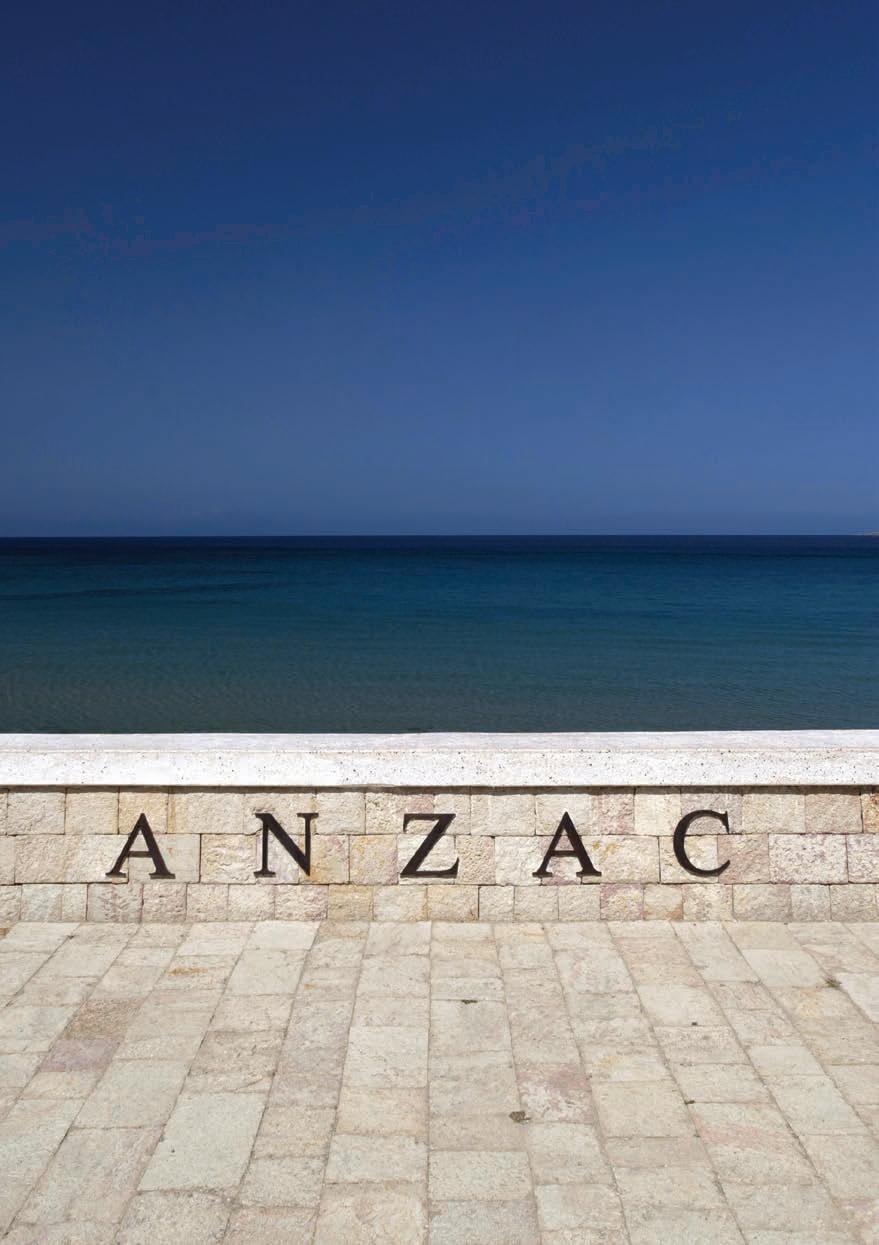
We will remember them Anzac Day reflections across the generations MY STORY Prioritising love over hate FEATURE A new response for forgotten veterans FAITH TALK Sacrifices that redefine our lives Vol. 004 | No. 12 15 April 2023 AUD $1.00 PRINT POST APPROVED PP100001474 salvosonline.org.au ANZAC DAY EDITION
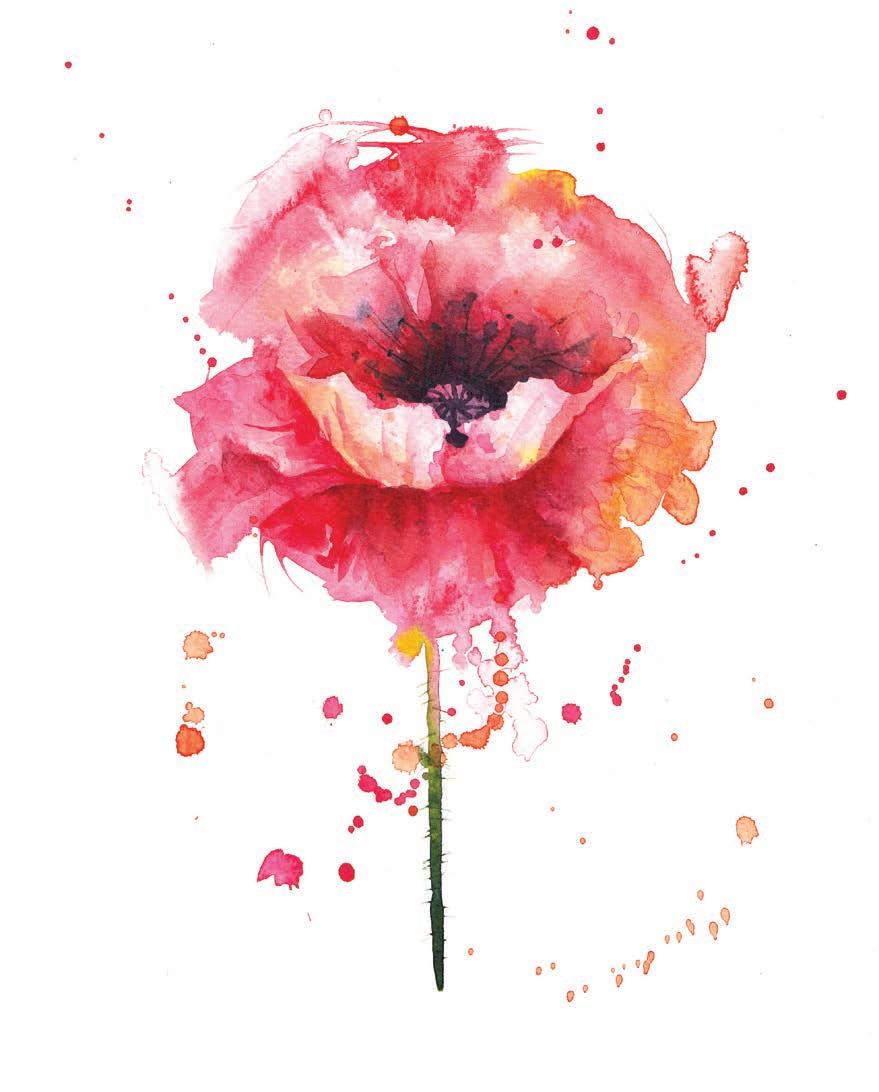
“They shall grow not old, as we that are left grow old; Age shall not weary them, nor the years condemn.
At the going down of the sun and in the morning We will remember them.”
– Laurence Binyon
What is The Salvation Army?
The Salvation Army, an international movement, is an evangelical part of the universal Christian Church.
Vision Statement
Wherever there is hardship or injustice, Salvos will live, love and fight alongside others to transform Australia one life at a time with the love of Jesus.
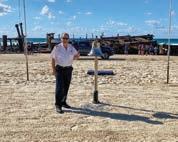
Mission Statement
The Salvation Army is a Christian movement dedicated to sharing the love of Jesus by:
• Caring for people

• Creating faith pathways
• Building healthy communities
• Working for justice
Reflection
The Salvation Army Australia acknowledges the Traditional Owners of the land on which we meet and work and pay our respect to Elders, past, present, and future. We value and include people of all cultures, languages, abilities, sexual orientations, gender identities, gender expressions, and intersex status. We are committed to providing programs that are fully inclusive. We are committed to the safety and well-being of people of all ages, particularly children.
Salvos Magazine
Founders William and Catherine Booth
General Brian Peddle
Territorial Leader Commissioner Miriam Gluyas
Secretary for Communications and Editor-In-Chief

Colonel Rodney Walters
Publications Manager Cheryl Tinker
Editor Simone Worthing
Graphic Designer Ryan Harrison
Enquiry email publications@salvationarmy.org.au
All other Salvation Army enquiries 13 72 58
Press date 3 April 2023
Printed and published for The Salvation Army by Commissioner Miriam Gluyas at Focus Print Group, South Granville, NSW
salvosonline.org.au
As Anzac Day approaches this year, wars and conflicts, hate and violence rage around the world. According to the Council on Foreign Relations Global Conflict Tracker, there are currently 27 ongoing conflicts worldwide.
The death, destruction, suffering and heartbreak of war continue to impact millions of people globally.
In Australia, Anzac Day is a time to commemorate and remember those who have died in wars for our nation, those who are serving around the world today, and those who have returned to rebuild their lives.
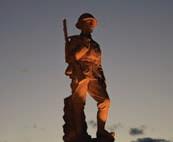
In this edition, we feature brief perspectives from people aged seven to 89 who share what Anzac Day means to them. In My Story, Bryce Davies also reflects on some unique Anzac Day commemorations, and the need to prioritise love over hate.
In Faith Talk, Belinda Davis shares her thoughts on Anzac Day from childhood to now, with a focus on sacrifice.
Lest we forget.
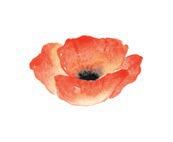 Simone Worthing Editor
Simone Worthing Editor
and
My Story [12] Prioritising love over hate Faith Talk [10] Promising to remember Feature [4] We will remember them
response
The Salvation Army is about giving hope where it’s needed most.
CONTENTS 3 15 A PR il 2023
The Voice to Parliament
Why The Salvation Army supports it
Words Stuart Glover
The Salvation Army is one of Australia’s biggest providers of social services. We are on the ground providing hope in more communities than McDonald’s is serving burgers.
We are a pragmatic movement, not into empty gestures or performative virtue signalling. So it might come as a surprise, given some of the commentary around it, that The Salvation Army is a steadfast supporter of an Aboriginal and Torres Strait islander Voice to Parliament.
across every state and territory in Australia. We support people experiencing homelessness, family and domestic violence, financial hardship, unemployment, social isolation and loneliness and help them recover from natural disasters.
ACTIVELY LISTENING
Throughout our history, we have learnt the hard way about delivering services without listening, thinking we knew best. This approach did not work then and does not work now. This has been our most important lesson over the past 140 years – you can’t help people if you’re not listening to them.
• You can’t deliver a great service without actively listening to the people using it.
• You can’t draft a great policy if you’re not listening to the people who have to follow it.
That is because, simply put, we don’t think a Voice will be hollow symbolism. it will be powerfully symbolic, of course, but it will also be deeply practical in a way that can lead to better outcomes and enrich the experience of both indigenous and non-indigenous Australians together.

let me explain why.
For around 140 years, Salvos have rolled up their sleeves and helped where they can. We started social services with a modest program assisting discharged prisoners at the prison gates in Melbourne, and now we provide over 2000 services
• You can’t make great law if you’re not listening to the people who will be impacted by it.
When we engage with people impacted by disadvantage we find areas of strength that provide a platform for change. When we make space for people to feel empowered and equipped, the level of innovation is astounding. When we acknowledge our country’s vastness and diversity, we can find local solutions that work in ways that couldn’t be imagined from an air-conditioned conference room in a capital city.
The Salvos live, love and fight for
FEATURE
SALVOS MAGAZINE 4
It is hard to listen to people if you don’t let them have a voice.
justice wherever they can. We have met with many MPs and senators in the Parliament and, without exception and wherever they sit in the chambers, we have heard their desire to make good laws. i believe they want to listen.
i think all governments try to consult, but there are some very practical constraints. This is a huge country, and with over 250 Aboriginal and Torres Strait islander nations, and consulting with people from three or four nations is not going to get the best results. We have 151 seats in the House of Representatives for a reason. We all know that someone speaking for innercity Sydney can’t speak for people in rural Western Australia or remote areas of the Northern Territory (or vice versa).
VOICE TO PARLIAMENT
A constitutionally enshrined Voice to Parliament creates an opportunity to start to make real progress on addressing the terrible disadvantage Aboriginal and Torres Strait islander Australians experience.

it will allow our lawmakers – not just the government but those in parliament we rely on to keep the government accountable – to hear directly from Aboriginal and Torres Strait islander people. They will get access to the diversity of views of Aboriginal and Torres Strait islanders about matters that affect them differently depending on their circumstances. They will get information not filtered by multiple levels of government, not varnished and polished by service providers, and not sanitised into talking points by public servants.
i believe that once we have the Voice in the Constitution, Parliament can work together to ensure it delivers on its
promise. That is how it has worked for every other public institution in Australia’s history, and no other reform has been perfect from day one. But i understand why many Aboriginal and Torres Strait islander people don’t have that kind of faith. Our history is littered with ‘consultation’ with mob that has been ignored.
That diversity of thought needs to be respected. Diversity will make a Voice to Parliament so much more powerful if, and when, it becomes part of the Constitution. This is what The Salvation Army is praying will happen – because of the other thing we have learnt over 140 years of helping Australians – it is impossible to listen to people if you don’t let them have a voice.
Captain Stuart Glover is the Secretary for Mission, responsible for The Salvation Army’s social services in Australia and a proud member of the Bundjalung Nation.
FEATURE 15 A PR il 2023
FEATURE SALVOS MAGAZINE 6
Lest we forget
A new response for forgotten veterans
Words Anthony Castle
There can be an increasing distance between the veterans who often come to mind on Anzac Day, and the lived experience of those who have served more recently. The Salvation Army’s Red Shield Defence Services (RSDS) team of philanthropic representatives currently support servicepeople every day, and the recent Royal Commission into Defence and Veteran Suicide has raised real concerns about the risks faced by many of today’s younger ex-servicepeople.

“i think we can have those two pictures of veterans in our mind,” explains The Salvation Army’s Major Brett Gallagher, Chief Commissioner of the RSDS. “Old black and white footage of young
Australians and the older people who march on Anzac Day – we don’t always understand that we have a large cohort of people in their 20s who are now veterans in our community.”
VETERANS YOUNG AND OLD
A veteran is defined as anyone who has served even one day in defence, whether still serving or ex-serving. This can sometimes be at odds with the expectations of the general public, especially on occasions such as Anzac Day.
“That’s a hard switch for our community to take, that a veteran can be still quite young, and may not have fired a weapon in anger or had a weapon fired at them. You could be dealing with veterans and may not even know it,” Brett says.
The RSDS provide refreshments to soldiers and officers during their training activities. The team supports those serving on base, at military training areas around the country, and have even been on rotation to the Middle East region.
7
FEATURE
We have a large cohort of people in their 20s who are now veterans in our community.
15 A PR il 2023
Major Brett Gallagher.
“We’re just starting to see what the impact is for this 20-year conflict, for young veterans who were asked to go to iraq and Afghanistan,” says Brett. “We’ve worked with WWi and WWii veterans and veterans from Korea and Vietnam, but each cohort has their own underlying challenges.”
RECENT CONFLICTS
Australia had been at war in the Middle East region for the last two decades, but those conflicts can sometimes be underestimated as we remember those who fell a century ago.
“They’ve lost mates, they saw things they were powerless to change,” Brett explains. “it strikes deep into the heart of people. We’re seeing that start to work out as they leave defence and are trying to cope with what that service meant for them.”
The Royal Commission into Defence and Veteran Suicide was established in 2021 to inquire into the issues and risks for those who have served. More than 1600 Australian veterans and serving
personnel have died by suicide in the past two decades, and Australia has lost more personnel to suicide than through operations over the last 20 years in Afghanistan and iraq.

“in many places, veterans are one of the most in-need cohorts because of the co-morbidities caused by their service and how they attempt to deal with their issues post-service,” says Brett. “We also know that we’re supporting veterans through a number of our Alcohol and Other Drugs centres, and that veterans’ families present to our Family and Domestic Violence services. Our hope is that we can present a program that can connect veterans’ needs to the relevant services in a consistent way.”
The Royal Commission’s interim report found that, as at the end of May 2022, the Department of Veterans Affairs had a backlog of nearly 42,000 claims for compensation.
“Services can be underfunded, not done well, or people don’t know what they offer,” explains Alexis McKeand,
SALVOS MAGAZINE 8 FEATURE
Red Shield Defence Services representatives delivered furniture to the new home of former soldier Gavin Ellis (on truck) with the help of Salvos Veteran Support Team leader, Jonathan Dyer.
Veterans Ministries Co-ordinator. “Think about Centrelink. You can be on the phone for hours, your claim going from one person to the next. Veterans’ services can be similar.”
We’re talking about people who defend our country – how
can we make their lives better?
CURRENT CHALLENGES
Alexis is on base with the Royal Australian Air Force, serving in roles with the Air Force and The Salvation Army. She engages with the findings of the Royal Commission, researching the challenges that veterans face in community, in services, even defence itself.

“i read about one ex-serving woman who was homeless and finally went into a service,” Alexis shares. “When she was
identified as a veteran, she answered ‘no’, because she hadn’t served in war. Even within defence there can be a confusion or a stigma there, that if they haven’t gone to war, they don’t deserve support.”
The work of the RSDS going forward will be to develop The Salvation Army’s national framework for veterans – a consistent response across services and training so that help and support can be provided.
“We’re talking about people who defend our country,” Alexis says. “The people i meet give their whole lives to do their best and make sure we’re safe. They put their bodies and minds and families on the line. How can we make their lives better, whether they’ve served two days or 20 years?”
The Royal Commissioners are required to provide a final report in June, and The Salvation Army will begin to build new supports for the newest veterans.
“Once the Royal Commission releases its findings, we will identify the areas we can best respond to,” says Brett. “There is a holistic approach that we can be taking, to have a system that knows how to support veterans, not just with the issues they’re presenting with, but a whole of life response.”
For information on the Salvos Veteran Support Team, go to bit.ly/40mk6ra
To read the ADF reports on veteran suicide, go to dva.gov.au
Scan here for more information on Salvation Army Homelessness Support Services.

9 FEATURE
15 A PR il 2023
Captain Alexis McKeand, Veterans Ministries Coordinator.
Promising to remember
Sacrifices that redefine our lives
Words Belinda Davis
i have a confession to make. When i was growing up, i had very little understanding of or appreciation for Anzac Day. My earliest recollections involve being encouraged to join a minute’s silence at primary school and think about someone who had died in war.
i was only six or seven at the time, and didn’t know of anyone who had died in conflict. i distinctly remember thinking about my Uncle David, who died in a road accident when i was a year old, because that was the closest i could get.
As i continued to grow, i formed the opinion that Anzac Day’s primary purpose was to glorify war and violence, and give returned soldiers an opportunity to get drunk and reminisce with their soldier mates. To be fair, the education provided to our children now about the purpose of Anzac Day is far more extensive and factual than i ever recall during my school years.
CHANGE OF PERSPECTIVE
The moment this understanding dramatically changed for me was when i was 18 and watched the movie Gallipoli with some friends who were part of the Australian Army Band Corps. in the closing scenes of that movie, i realised that the men who went to fight and die for us were not the older people who marched each year on Anzac Day, but people of my age, and younger. This might sound strange, but i had never really thought about the fact that those who died had lives and families, and an expectation that they would return to take up where they left off.
These were ordinary men and boys trying to do the right thing and stand up to stop injustice. Yes, there may have been some sense of adventure and an opportunity to ‘see the world’, but they were under no misunderstanding that this was not serious business.
i find that Anzac Day is even more poignant when it falls close to Easter celebrations. The theme of sacrifice ties in with the memorial focus.

SALVOS MAGAZINE 10 FA i TH TA l K
SACRIFICIAL LOVE
Sacrificial love automatically prompts me to remember the verse in the Bible that says: “Greater love has no one than this: to lay down one’s life for one’s friends” (John chapter 15, verse 13), which is often the story commonly retold about the battlefield.
When i think about the sacrificial love story of Easter, a verse that speaks even louder is found in Romans chapter 5, verse 8, “But God demonstrates his own love for us in this: while we were still sinners, Christ died for us.”
So now, as each year rolls around i take the time to reflect on the depth of sacrifice that others have paid on my behalf – those on the battlefield and Jesus Christ on a wooden cross in Jerusalem.

Major Belinda Davis is a Salvation Army officer (pastor) in South Australia. She blogs at a-blessed-life.com
Scan here for more stories of hope and community.

11
FA i TH TA l K
15 A PR il 2023
Prioritising love over hate
Responding to Anzac Day
 Words Bryce Davies
Words Bryce Davies
Every year on 25 April in Australia, hundreds of memorial services take place to remember and reflect on the sacrifices made by our service men and women in war.
At the crack of dawn, hundreds of thousands of people gather in cities, towns and remote locations around the country to pay their respects. A bugle sounds out in the pre-dawn darkness, and men and women with medals and slouch hats gather and remember.
and the only time each year that i get fully kitted out in my Salvo uniform, complete with a cap and even a tie.
it’s often a very emotional day, and it always surprises me how many enthusiastic people, young and old, make it a priority to get out of bed at a ridiculous hour to attend these dawn services. As a Salvo pastor, i’ve been attending Anzac Day services for many years and i always feel honoured to participate.
Often my task is to pray or to present a short reflection. it’s a formal occasion,
During the COViD-19 lockdowns, we gathered on our driveway at dawn, lit a fire in a fire pit, shared a few thoughts and prayers, and played the last Post. Bugles rang out all over the neighbourhood. it was a lovely experience.
UNIQUE COMMEMORATIONS
later that day, i went on a special trail run to help celebrate a friend’s birthday. This group is slightly crazy, and we were all required to wear tutus and colourful clothes for the birthday celebration. As it was Anzac Day, i packed a trumpet and my Salvo cap in my running pack, and we had a little ceremony on a bridge. My friend who was having the birthday cried, not just because of my average bugle playing, but because something of the power of the Anzac spirit and the love and sacrifice we made to surprise her had touched a chord.
SALVOS MAGAZINE 12 MY STORY
My reflections at Anzac Day services are always about our responsibility to be decent human beings …
Bryce and his wife, Sue played an active role at a recent Anzac Day service on K’gari (Fraser Island).
A year later i was on K’gari (Fraser island) at a place called Happy Valley where there is a World War i hospital shipwreck – the SS Maheno – on the beach.

The High Rise Rotary Club in Brisbane, where i have been a member for many years, had invited me to share a prayer and lead the singing at their annual Anzac Day service beside the ship. K’gari is a three-hour drive from Brisbane and requires a ferry crossing and some serious four-wheel driving to get to. You would think this would be a tough place to pull in a crowd, but 1100 people turned up.
There were Australian Army jeeps and a Hummer. We even had a flyover from a Super Hornet jet and a massive transport plane. it was an amazing experience.
i’m not a fan of war and cringe at the senseless killing and seemingly obscene expenditure on weapons and military infrastructure. i am horrified by the number of veteran suicides in Australia since the start of the war in Afghanistan in 2001 – and the 46 lives lost on the battlefield during that period.
CARING FOR EACH OTHER
There is nothing to celebrate here. My reflections at Anzac Day services are always about our responsibility to be decent human beings and to share our resources and care for each other generously and sincerely.
As a nation we’ll do this more and more if, as individuals, we make this the prevailing culture. it all seems a bit overwhelming to make any difference between nations, so there is a temptation to do nothing.
My wife Sue and i support families in Papua New Guinea and we have a lot of warm and friendly connections there. The poverty and suffering in that
country is significant and our support is a drop in the ocean, but there are half a dozen families there who vouch for the kindness of Australians because an Aussie couple helps them feed their kids. it’s harder to go to war when people are kind to you.
We are an incredibly prosperous and blessed people in Australia. Surely as a nation, we can prioritise love over hate.
Bryce Davies is a Salvation Army officer (pastor) based in Brisbane. To listen to his Stories of Hope podcast, go to brycedavies.libsyn.com

Scan here for more stories of hope.

13 MY STORY
15 A PR il 2023
Bryce after the Anzac Day service, with the wreck of the SS Maheno in the background.
Anzac slice Have a laugh
What do you call a happy penguin? A pen-grin!
Ingredients
400g Anzac biscuits; ½ cup coconut; 75g butter, melted; ½ cup condensed milk; 1¼ cups icing sugar; 2 tbsp passionfruit pulp

Method
• Finely crumb the Anzac biscuits in a food processor or by hand.
• Place the crumbs into a large bowl. Stir in coconut, butter and condensed milk. Mix well.
• Press firmly into a slice tin 20cm x 30cm.
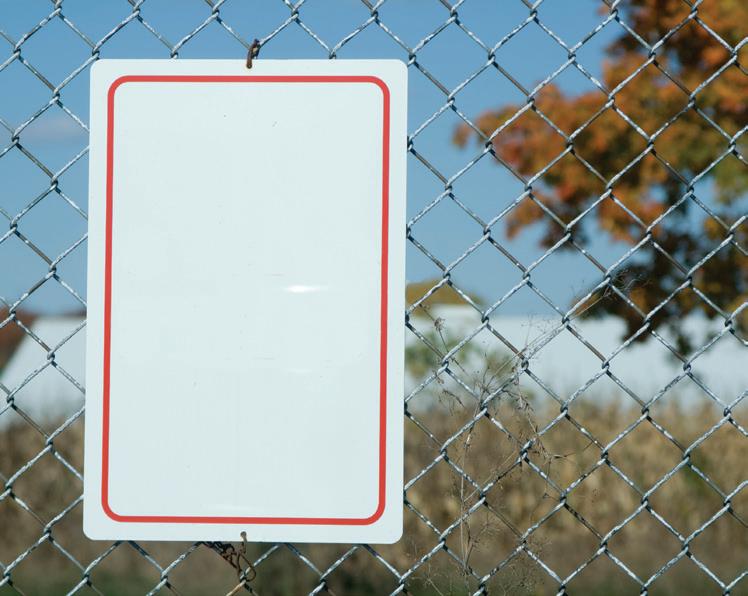
• Refrigerate for a few hours or until firm.
• Sift icing sugar into a bowl, then stir in passionfruit pulp to make a paste. Microwave on high for 30 seconds, or place over bowl of hot water until spreadable.
• Spread icing over slice.
• Refrigerate until icing is set. Cut and serve.
What is a penguin’s favourite family member? Aunt Arctica!
Where do penguins watch movies? At the dive-in!
What is a penguin’s favourite fast food? Ice-burger.
Signing In
SA lVOS MAGAZ i NE TASTE OF li FE
PENGUIN LOVERS PARKING ONLY VIOLATORS WILL FREEZE TO DEATH
SudokuPuzzle #1
Fill in the grid so that every row, every column and every 3x3 box contains the digits 1 to 9.
Quick quiz
1. What was the original shape of Anzac biscuits?
2. What were Anzac biscuits first known as?
3. What does ANZAC stand for?
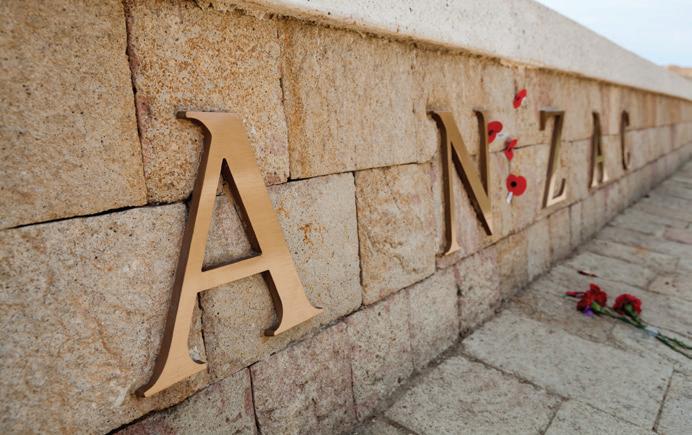
4. What herb, which grows wild on the Gallipoli Peninsula, is a symbol of remembrance for Anzac Day?
5. The phrase ‘lest we forget’ comes from a poem titled ‘Recessional’ written in 1897 by whom?
On which page of this week’s Salvos Magazine is Tum-Tum hiding?
Bible byte
“When you pass through deep waters, I will be with you.”
Isaiah chapter 43, verse 2 New Living Translation
Tum-Tum: is hiding behind the caption on page 13.
Kipling 6. 25 April 1915
6. On what date did the Anzacs land on the Gallipoli Peninsula?
25 April is World
Penguin Day.

15 TAKE F i VE
Quiz :answers 1. Square 2. Soldier biscuits 3. Australian and New Zealand Army Corps 4. Rosemary 5. Rudyard
All penguin species are native to the Southern Hemisphere. Penguins pant like dogs to prevent overheating.
There are 17 species of penguins, 13 of which are endangered.
2 8 4 5 2 7 4 1 7 3 7 8 8 1 4 1 7 8 2 2 7 1 6 9 1 6 2 8 2 Solutions Puzzle #1 9 2 7 3 8 4 6 1 5 3 6 5 9 2 1 4 7 8 4 1 8 5 6 7 3 2 9 1 7 2 8 9 6 5 3 4 8 3 9 2 4 5 7 6 1 6 5 4 1 7 3 9 8 2 2 4 3 7 5 8 1 9 6 5 9 1 6 3 2 8 4 7 7 8 6 4 1 9 2 5 3
15 A PR il 2023
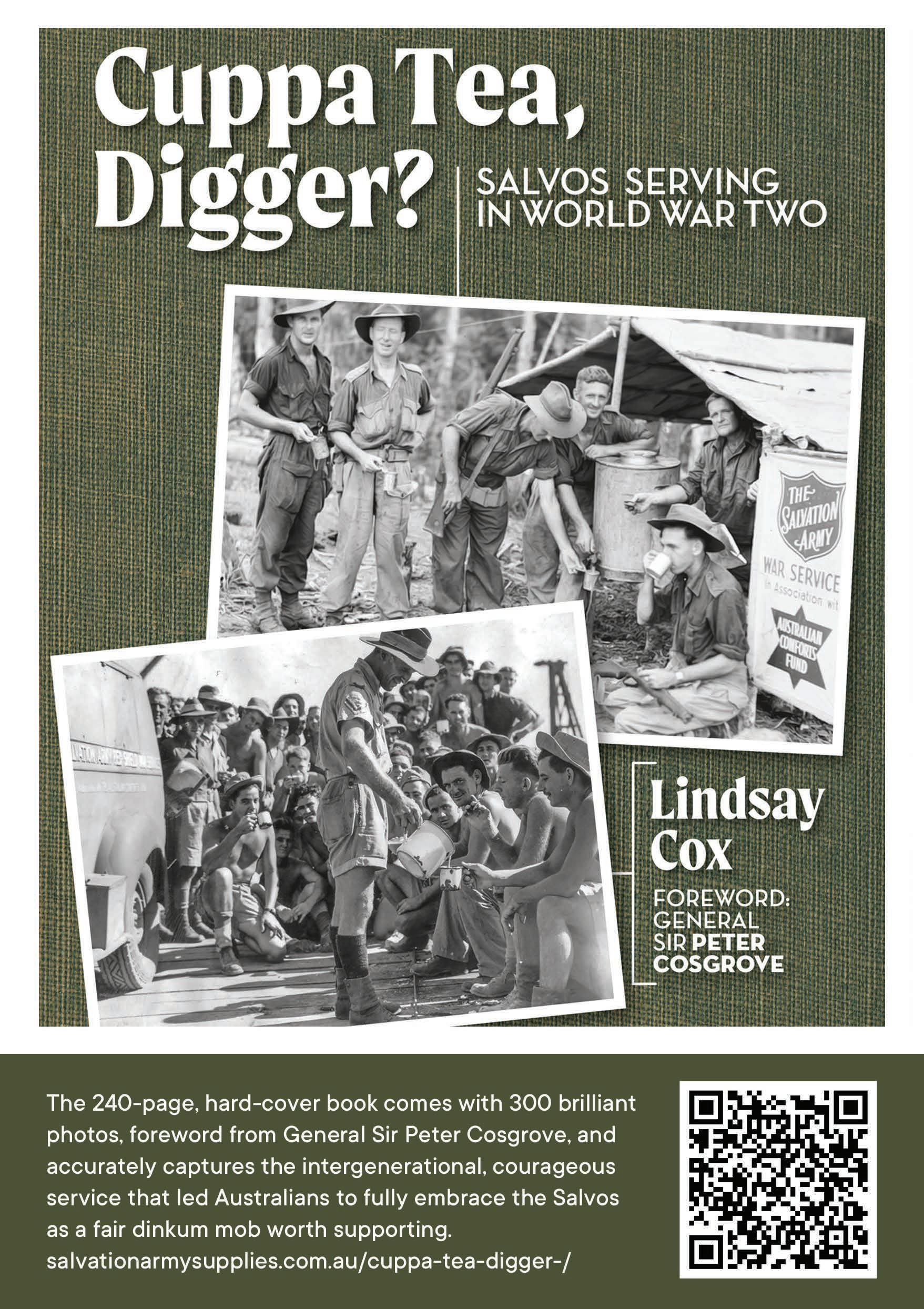





 Simone Worthing Editor
Simone Worthing Editor







 Words Bryce Davies
Words Bryce Davies






